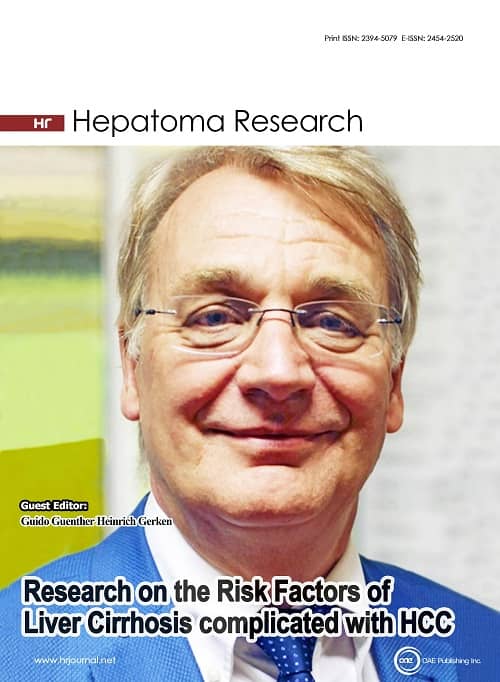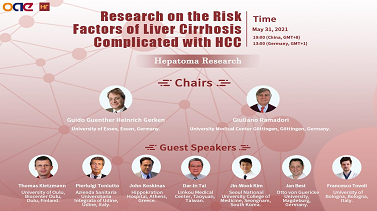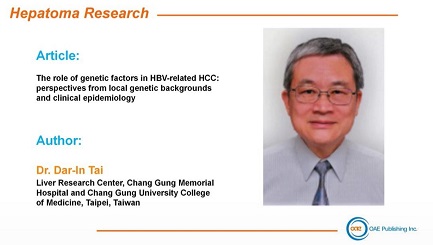
Topic: Research on the Risk Factors of Liver Cirrhosis Complicated with HCC
A Special Issue of Hepatoma Research
ISSN 2454-2520 (Online) 2394-5079 (Print)
Submission deadline: 31 May 2020
Guest Editor(s)
Special Issue Introduction

Special Issue webinar: Research on the Risk Factors of Liver Cirrhosis Complicated with HCC
Hepatocellular carcinoma (HCC) is the sixth most frequent malignancy and the second most common cause of cancer-related death worldwide. However, HCC is a major global health problem with geographic, ethnic and racial variation worldwide. In general HCC develops on the basis of a chronic liver disease, mostly associated to liver cirrhosis as the most important pathogenetic risk factor. There are several viral, non viral, metabolic, environmental and genetic factors, etc. as risk factors for the development of HCC, but currently NAFLD/NASH are significantly increasing as leading HCC triggering factor worldwide.
For our Special Issue, we focus on hepatoma risk factors, and topics should be discussed such as the importance of HCV, HBV, NAFLD/NASH/metabolic syndrome, hereditary disease including Hemochromatosis/Wilson’s disease, Alcoholic Steatohepatitis, autoimmune diseases including autoimmune hepatitis, Primary Biliary Cholangitis, Primary Sclerosing Cholangitis, aflatoxin/nicotine exposure, in addition to prevention strategies (vaccination, nutrition, treatment) and the value of biomarkers (AFP) in the early diagnostic and prediction in patients at risk for HCC.
Submission Deadline
31 May 2020
Submission Information
For Author Instructions, please refer to https://www.oaepublish.com/hr/author_instructions
For Online Submission, please login at https://oaemesas.com/login?JournalId=hr&SpecialIssueId=334
Submission Deadline: 31 May 2020
Contacts: Haidi Ding, Assistant Editor, editor_Haidi@hrjournal.net







